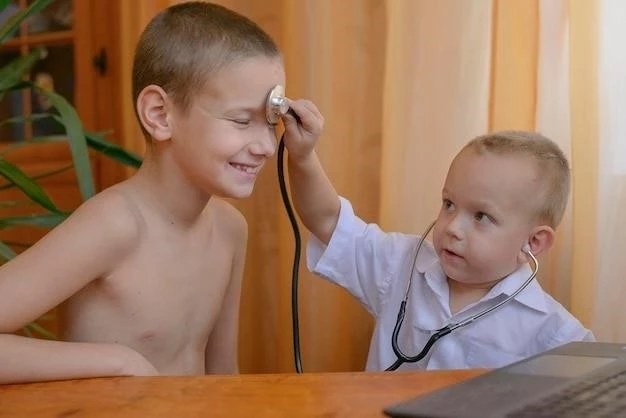Introduction
Mayer-Rokitansky-Kuster-Hauser (MRKH) syndrome is a rare condition affecting the female reproductive system, leading to underdeveloped or absent uterus and vagina.
Overview of Rokitansky–Küster–Hauser Syndrome
Mayer-Rokitansky-Küster-Hauser (MRKH) syndrome affects the female reproductive system, leading to underdeveloped or absent uterus and vagina. It is vital to understand the impact, diagnosis, and treatment options associated with this rare condition.
Types and Characteristics
Mayer-Rokitansky-Küster-Hauser syndrome includes two types⁚ Type 1 with variable underdevelopment of the vagina and uterus, and Type 2 primarily affecting the reproductive and urinary systems.
Distinguishing Between Type 1 and Type 2 MRKH Syndrome
Understanding the differences between Type 1 and Type 2 MRKH syndrome is crucial for accurate diagnosis and treatment. Type 1 presents with variable underdevelopment of the vagina and uterus, while Type 2 primarily affects the reproductive and urinary systems, emphasizing the need for tailored medical approaches.
Diagnosis
Diagnosing Mayer-Rokitansky-Küster-Hauser syndrome involves a comprehensive evaluation combining medical history, physical examination, imaging studies like MRI, and potentially laparoscopy to confirm the absence or underdevelopment of the uterus and upper vagina.
Methods Used to Diagnose MRKH Syndrome
Diagnosing Mayer-Rokitansky-Küster-Hauser (MRKH) syndrome typically involves a comprehensive evaluation combining medical history, physical examination, imaging studies such as MRI, and potentially diagnostic laparoscopy to confirm the absence or underdevelopment of the uterus and upper vagina. It is essential to consult with healthcare professionals who specialize in reproductive disorders to ensure an accurate diagnosis.

Clinical Features
Mayer-Rokitansky-Küster-Hauser syndrome presents with underdeveloped or absent uterus and upper vagina, normal external genitalia, and variable ovarian function.
Understanding the Impact on Female Reproductive System
Mayer-Rokitansky-Küster-Hauser (MRKH) syndrome profoundly affects females by leading to underdeveloped or absent uterus, variable ovarian function, and normal external genitalia. Dealing with the physiological and psychological aspects of this condition is crucial for the overall well-being of individuals affected by MRKH syndrome.
Etiology
Mayer-Rokitansky-Küster-Hauser syndrome’s exact cause remains unclear, with both genetic and nongenetic factors potentially interacting during embryonic development.
Possible Causes and Underlying Factors of MRKH Syndrome
Although the exact causes of Mayer-Rokitansky-Küster-Hauser (MRKH) syndrome are not fully understood, the condition is believed to involve genetic and nongenetic factors that interact during embryonic development. Research suggests a complex interplay between multiple factors contributing to the aplasia of the uterus and upper vagina in individuals with MRKH syndrome. Consultation with healthcare providers specializing in reproductive disorders can aid in understanding the possible etiology of MRKH syndrome and guide appropriate management strategies.
Prevalence
The prevalence of Mayer-Rokitansky-Küster-Hauser syndrome is estimated to occur in about 1 in 4,000 to 5,000 female births, highlighting its rare occurrence.
Statistics and Frequency of Rokitansky–Küster–Hauser Syndrome
Mayer-Rokitansky-Küster-Hauser (MRKH) syndrome, also known as Müllerian aplasia, is a rare condition estimated to occur in approximately 1 in 4,000 to 5,000 female births, highlighting its infrequent occurrence in the general population.
Seeking appropriate medical interventions and support is crucial when managing Mayer-Rokitansky-Küster-Hauser syndrome. Consulting healthcare professionals specializing in reproductive health can help explore available treatment options based on individual needs and preferences.
Treatment Options
When dealing with Mayer-Rokitansky-Küster-Hauser syndrome, seeking appropriate medical interventions and support is crucial. Consulting healthcare professionals specialized in reproductive health can help explore available treatment options tailored to individual needs and preferences.

Psychological Aspects
Dealing with Mayer-Rokitansky-Küster-Hauser syndrome involves addressing psychological challenges. Seeking support and counseling can help cope with emotional aspects effectively.
Addressing Psychological Challenges Faced by Individuals with MRKH Syndrome
Managing the psychological impact of Mayer-Rokitansky-Küster-Hauser syndrome is essential. Seeking counseling and support can help individuals navigate the emotional aspects associated with the condition effectively.
Fertility and Reproductive Considerations
Individuals with Mayer-Rokitansky-Küster-Hauser syndrome may face challenges related to fertility and reproductive health. Consulting with specialists is essential for personalized guidance.
Impact of MRKH Syndrome on Fertility and Reproductive Health
Mayer-Rokitansky-Küster-Hauser (MRKH) syndrome can significantly impact fertility and reproductive health in affected individuals. Understanding these implications is crucial for informed decision-making and accessing appropriate reproductive healthcare services tailored to individual needs.
Surgical Procedures
Explore surgical interventions for Mayer-Rokitansky-Küster-Hauser syndrome to address uterine and vaginal aplasia and improve reproductive health outcomes.
Overview of Surgical Interventions for MRKH Syndrome
Surgical procedures for Mayer-Rokitansky-Küster-Hauser syndrome aim to address uterine and vaginal aplasia, enhancing reproductive health outcomes and quality of life for affected individuals. Various surgical interventions, such as vaginoplasty and neovaginoplasty, may be considered to reconstruct or create vaginal structures, offering potential solutions for individuals with MRKH syndrome to achieve improved reproductive health and well-being.
Stay informed about the latest research and advancements in understanding and treating Mayer-Rokitansky-Küster-Hauser syndrome for improved management strategies.
Research and Advances
Stay up-to-date on the latest developments in understanding and treating Mayer-Rokitansky-Küster-Hauser syndrome for improved patient care and outcomes.
Genetic counseling plays a vital role in managing Mayer-Rokitansky-Küster-Hauser syndrome. It provides essential insights and guidance tailored to individual genetic factors.
Genetic Counseling
Genetic counseling is crucial for individuals with Mayer-Rokitansky-Küster-Hauser syndrome to understand the genetic aspects and make informed decisions about their reproductive health and family planning.
Support Groups
Explore organizations providing support and resources for individuals affected by Mayer-Rokitansky-Küster-Hauser syndrome to access guidance and community.
Organizations Offering Support and Resources for Those Affected by MRKH Syndrome
Support groups like MRKH Connect and MRKH Stars provide valuable resources and a sense of community for individuals navigating the challenges of living with Mayer-Rokitansky-Küster-Hauser syndrome. Seeking support from these organizations can offer guidance, information, and a supportive network for those affected by the condition.
Individuals with Mayer-Rokitansky-Küster-Hauser syndrome may experience potential complications and associated conditions, emphasizing the need for comprehensive medical management.
Complications and Associated Conditions
Individuals with Mayer-Rokitansky-Küster-Hauser syndrome may experience potential complications and associated conditions, highlighting the importance of comprehensive medical management.
Awareness and Advocacy
Advocate for increased awareness of Mayer-Rokitansky-Küster-Hauser syndrome to foster understanding, support, and empowerment within the community.
Promoting Awareness and Advocacy Efforts for Rokitansky–Küster–Hauser Syndrome
Based on the information available on the Internet, Mayer-Rokitansky-Küster-Hauser (MRKH) syndrome is a rare condition that affects the female reproductive system. This congenital disorder leads to the underdevelopment or absence of the uterus and upper part of the vagina in individuals with a normal female karyotype (46,XX). While most commonly diagnosed during adolescence due to primary amenorrhea, MRKH syndrome can impact fertility and reproductive health. Surgical interventions like vaginoplasty and neovaginoplasty aim to improve reproductive health outcomes. Organizations such as MRKH Connect and MRKH Stars provide valuable support and resources for individuals navigating the challenges associated with MRKH syndrome. It’s essential to raise awareness about this condition to foster understanding, support, and empowerment within the community.
